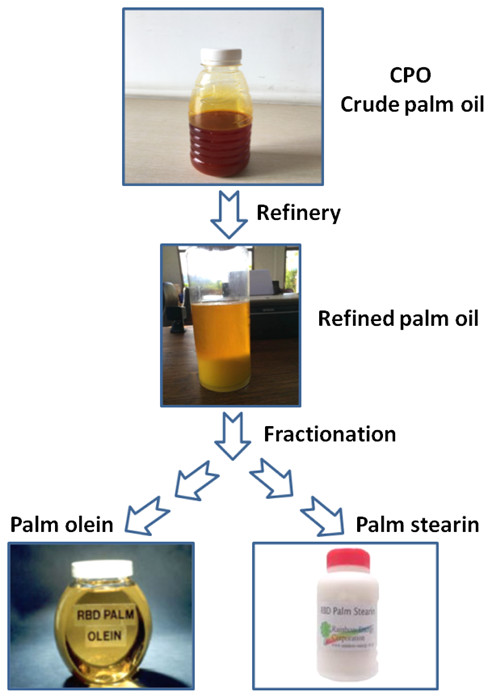What is palm oil & palm kernel oil?
Palm oil and palm kernel oil are important and versatile vegetable oils used as raw material for both food and non-food industries. Historically, palm oil was exported from West Africa in the late 18th and 19th centuries to be used as a lubricant in the factories of Europe. Nowadays, it still has industrial uses – palm kernel oil, for example, is used for everything from specialist lubricants to cosmetics, soaps and animal feeds.
But the lighter (i.e., less dense) palm oil from the fruits of the palm tree also provides one of the best (in terms of nutritional content) and cheapest vegetable oils available. Across Africa and large parts of Asia, palm oil is the dominant, and sometimes only, cooking oil used.
Vegetable oil production around the world totalled over 166 million tonnes in 2012, of which almost 55 million tonnes was palm oil; palm kernel oil production was less than 6 million tonnes. Along with soy oil, palm and palm kernel oil make up almost 65% of world production of vegetable oils.

Crude palm oil and refined palm oil
The oil palm tree is a highly efficient producer of oil, with each fruit containing about 50% oil. Palm oil and palm kernel oil are entirely GM free. Palm oil is rich in carotene from which it derives its bright, tropical, red colour. In fact, the carotene content of palm oil is 16 times higher than levels found in a carrot with the same mass and weight. This makes palm oil one of the main and richest sources of carotene and as such is important in combating vitamin A deficiency common in many developing countries.
Tocopherols and tocotrienol (vitamin E fractions) are other important nutrients found in palm oil. Carotene, tocopherols and tocotrienol act as antioxidant agents and can reduce cell damage caused by toxic substances and environmental pollution, which are both known to speed up the development of certain diseases. In addition, palm oil is an excellent source of tocotrienols, which are powerful anticarcengic substances and help against thrombosis.
In Asia, palm oil is also referred to as 'gold oil' for its perfect balance of saturated and unsaturated fatty acids that do not adversely affect cholesterol levels.
The palm tree originally comes from Africa and even though in the past Africans did not fully know about the benefits of palm oil, it has been used as a source of food for the last 5,000 years.
Obtained from both the flesh and the kernel of palm tree fruits, these oils make a huge contribution to the economic development of producing countries and to the diets of millions of people around the world. Oil palm trees can grow 20 metres tall, with leaves up to 5 metres long. They bear clusters of fruit all year long, with each fully matured cluster weighing up to 50kg.
